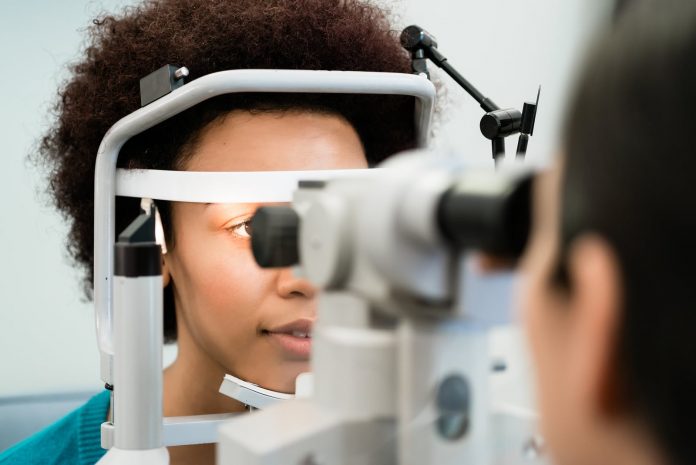More than 3 million Americans have glaucoma, the disease related to pressure within the eye, but only half know they have it. With open-angle glaucoma, the most common form of the disease, there are usually no symptoms. Anybody can develop glaucoma, but some groups of people are at increased risk. Glaucoma is the leading cause of blindness in this country, and there is no cure.
These are the groups at higher risk for developing glaucoma:
- Race. African Americans are about five times more likely to get glaucoma and suffer permanent vision loss than our white counterparts. The disease often strikes us at an earlier age—about 10 years earlier, on average—and progresses faster, too.
- Age. Glaucoma is much more common in older people. People older than age 60 are six to eight times more likely to develop the disease than younger folks.
- Family history. Having a family history of glaucoma increases the risk of developing glaucoma four to nine times.
- Medical conditions. Diabetes, high blood pressure and heart disease may increase the risk of developing glaucoma.
- Corticosteroid use. Prolonged periods of steroid use may increase the risk of getting secondary glaucoma. One study found a 40 percent increase in the incidence of ocular pressure and glaucoma in adults who require 14 to 35 puffs of steroid inhaler to control asthma. Note that this is a very high dose typically required only in cases of severe asthma.
- Physical injuries to the eye. Severe trauma can result in increased eye pressure. Injury also can dislocate the lens, closing the drainage angle, and increasing pressure. This type of glaucoma can occur right after the injury or years later.
- Other factors. Extreme nearsightedness, corneal thickness, retinal detachment, eye tumors and eye inflammation may induce glaucoma.
According to the American Optometric Association, those at high risk for glaucoma should get a complete eye exam, including eye dilation, every one or two years. With medication or surgery, it is possible to halt further loss of vision.






